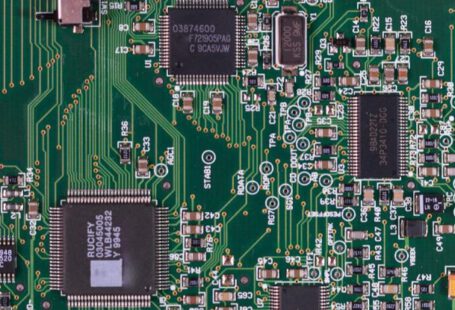In the ever-evolving world of technology, the speed and efficiency of our devices are paramount. Hard disk drives (HDDs) are a crucial component of our computers, responsible for storing and accessing data. Over time, these HDDs can become fragmented, leading to slower performance. This is where defragmentation tools come into play, promising to optimize your HDD and potentially speed up its operations. But do these tools truly deliver on their promises? Let’s delve into the world of defragmentation and explore whether they can indeed boost the speed of your HDD.
Understanding Fragmentation and Defragmentation
Before we dive into the effectiveness of defragmentation tools, it’s essential to grasp the concept of fragmentation. When data is stored on an HDD, it is not always saved in a sequential manner. Instead, the data can become fragmented, meaning that different parts of a file are scattered across various locations on the disk. This fragmentation can occur over time as files are created, modified, and deleted.
Defragmentation is the process of reorganizing the fragmented data on an HDD so that related pieces of a file are stored contiguously, resulting in improved access times and overall performance. Defragmentation tools are designed to automate this process, making it easier for users to optimize their HDD with a few clicks.
The Benefits of Defragmentation
One of the primary benefits of defragmentation is the potential improvement in the speed of your HDD. By rearranging data in a more organized manner, the read/write heads of the disk can access files more efficiently, reducing the time it takes to retrieve information. This can lead to faster boot times, quicker file access, and improved overall system responsiveness.
Defragmentation can also help extend the lifespan of your HDD. When files are fragmented, the disk drive has to work harder to piece together the scattered data, which can increase wear and tear on the hardware. By regularly defragmenting your HDD, you can reduce the strain on the drive and potentially prolong its longevity.
The Controversy Surrounding Defragmentation
While defragmentation tools have been a staple in the world of computer maintenance for years, there is some debate about their effectiveness, especially in the age of solid-state drives (SSDs). Unlike HDDs, SSDs do not suffer from the same performance issues caused by fragmentation, as they have no moving parts and can access data quickly regardless of its location on the drive.
For SSD users, defragmentation may not provide significant performance improvements and could potentially reduce the lifespan of the drive due to unnecessary read/write operations. In this case, optimizing the drive using trim commands or manufacturer-provided tools may be a more suitable solution.
However, for users with traditional HDDs, defragmentation can still offer tangible benefits. Regularly optimizing your HDD can help maintain its performance over time and ensure that you get the most out of your hardware investment.
The Verdict: Do Defragmentation Tools Speed up Your HDD?
In conclusion, defragmentation tools can indeed speed up your HDD, especially if you are using a traditional hard disk drive. By organizing fragmented data and reducing access times, defragmentation can lead to noticeable improvements in system performance. However, it’s essential to consider the type of storage drive you have before running defragmentation tools, as SSDs may not benefit from this process.
Ultimately, the decision to use defragmentation tools should be based on the type of drive you have and your specific performance needs. If you are experiencing sluggish performance on a traditional HDD, running a defragmentation tool could be a simple and effective way to boost speed and efficiency. Just remember to backup your data before proceeding, as with any disk maintenance operation.




